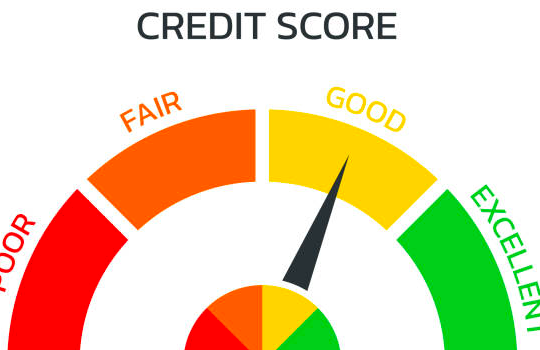Investing time in finance courses and earning certifications is crucial for professionals at all career stages. These educational pursuits offer numerous benefits, including staying updated on industry trends, enhancing technical skills, gaining a competitive edge, expanding knowledge across different finance domains, meeting industry standards, boosting career opportunities, and building a valuable professional network.

Additionally, continuous education helps professionals adapt to industry changes, demonstrates a commitment to growth, addresses ethical considerations, increases earning potential, and builds confidence. Ultimately, the strategic investment in finance education equips individuals with the knowledge, skills, and credentials necessary for success in the dynamic and competitive field of finance.
7 Finance Courses and Certifications
CFA (Chartered Financial Analyst)
The Chartered Financial Analyst (CFA) designation is widely recognized and respected in the finance industry. Administered by the CFA Institute, this program is designed for professionals aspiring to become investment managers, financial analysts, or portfolio managers. The CFA curriculum covers a wide range of topics, including ethics, investment tools, portfolio management, and wealth planning.
Earning the CFA charter involves passing three levels of exams, each focusing on different aspects of the financial industry. The program demands a significant time commitment, typically taking candidates three to four years to complete. However, the comprehensive nature of the CFA curriculum and the rigorous examination process make it a valuable qualification for those aiming to excel in the investment management field.
CPA (Certified Public Accountant)
For those interested in accounting and auditing, pursuing the Certified Public Accountant (CPA) designation is a wise move. Administered by the American Institute of Certified Public Accountants (AICPA), the CPA certification is widely recognized and opens up various career opportunities in public accounting, corporate finance, and government sectors.
The CPA exam is known for its challenging nature, covering areas such as auditing and attestation, financial accounting and reporting, regulation, and business environment and concepts. Achieving the CPA designation not only demonstrates expertise in accounting but also showcases commitment to maintaining high ethical standards in the finance profession.
FRM (Financial Risk Manager)
In an era where risk management is of paramount importance, becoming a Financial Risk Manager (FRM) is a strategic career move. The FRM designation, offered by the Global Association of Risk Professionals (GARP), is geared towards professionals involved in risk assessment and management, such as risk analysts, traders, and portfolio managers.
The FRM program consists of two levels of exams that cover topics such as quantitative analysis, financial markets and products, risk management and measurement, and current issues in financial markets. By obtaining the FRM certification, you demonstrate the ability to navigate the complexities of financial risk, making you an asset in industries where risk management is a critical component.
CFP (Certified Financial Planner)
For those interested in financial planning and advisory roles, the Certified Financial Planner (CFP) certification is a recognized standard. Administered by the Certified Financial Planner Board of Standards, the CFP designation is ideal for professionals seeking to provide comprehensive financial advice to individuals and families.
The CFP certification process involves completing an education program, passing a comprehensive exam, and meeting experience and ethics requirements. The curriculum covers financial planning topics such as investment planning, retirement planning, tax planning, and estate planning. A CFP certification not only enhances technical skills but also highlights commitment to the highest ethical standards in the financial planning profession.
ACCA (Association of Chartered Certified Accountants)
The Association of Chartered Certified Accountants (ACCA) qualification is globally recognized and offers a broad and comprehensive curriculum in accounting and finance. The ACCA program is suitable for professionals aspiring to become chartered accountants, auditors, or financial managers, providing a well-rounded education in various areas of finance.
The ACCA qualification consists of several modules covering topics like financial accounting, management accounting, taxation, and corporate governance. One of the advantages of ACCA is its flexibility, allowing candidates to progress at their own pace. Completing the ACCA certification not only equips with technical skills but also enhances the ability to navigate the complex financial landscape on a global scale.
CAIA (Chartered Alternative Investment Analyst)
As alternative investments gain prominence in the financial landscape, the Chartered Alternative Investment Analyst (CAIA) designation becomes increasingly valuable. Offered by the CAIA Association, this program is designed for professionals interested in alternative investments such as private equity, hedge funds, and real assets.
The CAIA program consists of two levels of exams, covering topics like ethics, professional standards, and a range of alternative investment strategies. Attaining the CAIA designation demonstrates expertise in an area of finance that is becoming more critical for investors and financial institutions alike. It is particularly relevant for those seeking roles in asset management, investment consulting, or risk management within the alternative investment space.
Fintech Certifications
With the rapid evolution of technology in the financial industry, staying abreast of fintech trends and developments is crucial for finance professionals. Various fintech certifications cater to different aspects of financial technology, including blockchain, artificial intelligence, and digital finance.
For example, certifications like the Certified Fintech Professional (CFtP) or Certified Blockchain Professional (CBP) provide specialized knowledge in emerging technologies. These certifications are particularly valuable for professionals aiming to work in roles related to financial innovation, digital banking, or blockchain-based applications.
FAQS
Are finance certifications only for entry-level professionals?
No, they’re valuable at all career stages, offering continuous learning and facilitating career transitions within the finance industry.
How do finance courses help in staying current?
They cover the latest developments, regulations, and technologies, ensuring professionals remain informed and competitive.
Can finance certifications be pursued online?
Yes, many offer online programs, providing flexibility for working professionals.
Are there specific certifications for fintech?
Yes, certifications like Certified Fintech Professional (CFtP) focus on emerging technologies in finance.
Can certifications be pursued part-time while working?
Yes, many certifications accommodate working professionals with part-time study options and flexible schedules.
Conclusion
The finance courses and certifications discussed in this article offer a diverse range of options for professionals at different stages of their careers. Whether you’re interested in investment management, risk analysis, financial planning, or emerging fintech trends, there’s a certification that can help you stand out in the competitive finance industry. Invest in your education wisely, and watch as your enhanced skills and credentials propel your career to new heights.
Read More:
How to Get Your Finances in Order After a Divorce – Tricky Finance
Green Investing in 2024: An In-Depth Guide to Eco-Friendly Investment Options – Tricky Finance
Investment Opportunities in 2024: Make a smart move! – Tricky Finance
Princy Agarwal, a postgraduate in English from Delhi University, writes content for Tricky Finance, where they simplify complex financial topics for readers. With a knack for clear communication, Princy’s work helps make finance understandable and accessible to all.



